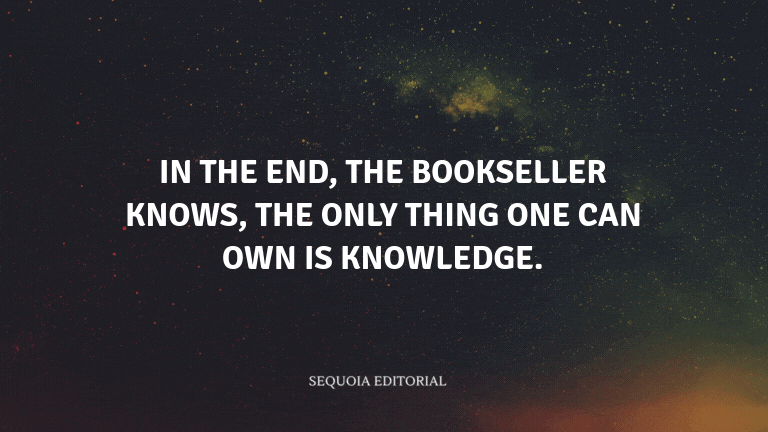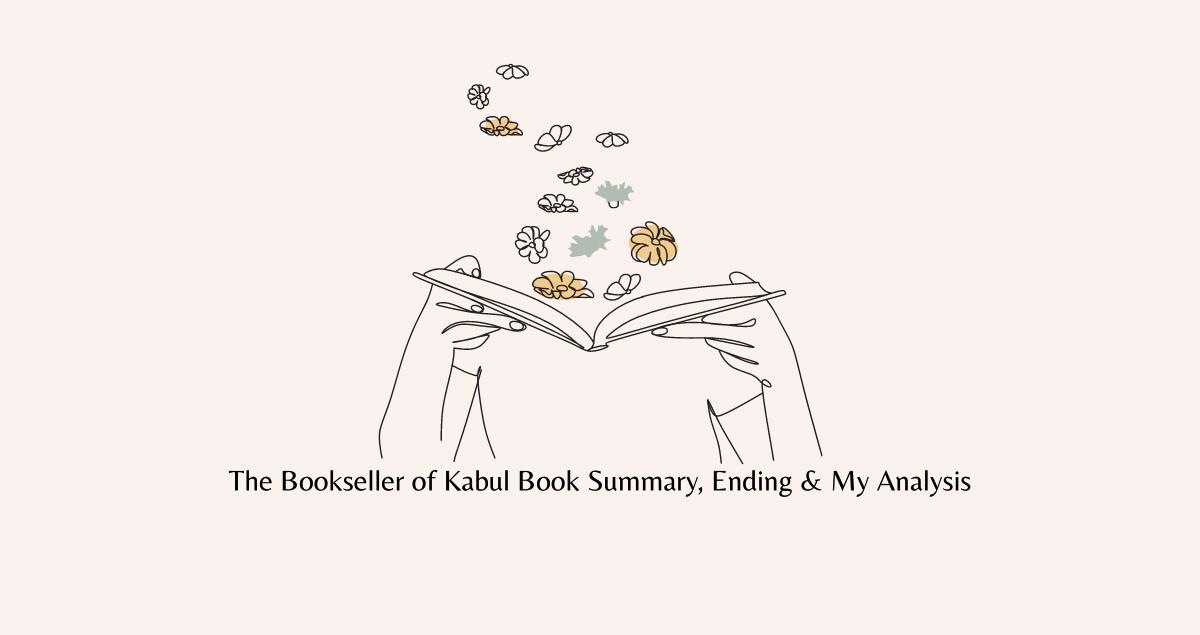The Bookseller of Kabul is about the life of the author, Åsne Seierstad, as she lived with a family in Kabul, Afghanistan. The story revolves around the intricate dynamics of the family, particularly focusing on Sultan Khan, the bookseller, and his family members. It explores their daily struggles, aspirations, and the impact of the war-torn city on their lives.
Table of Content
The Bookseller Of Kabul Book Summary
Sultan Khan, a bookseller in Kabul, is a man of books and wisdom. He embodies the conflict between tradition and modernity. His first wife, Roshi, is a traditional Afghan woman who dutifully takes care of the household. Sultan's second wife, Fatima, is younger and desires to learn and be independent.
Their family is also comprised of Sultan's children Aziza and Afghan, and his nephew Ali. Aziza, an intelligent girl, is denied a formal education due to societal constraints. Afghan aspires to be a journalist, but his future is uncertain in the unstable political climate.
Seierstad delves into the intricate daily lives and the impact of the outside world on the family. Sultan is a respected figure, yet his family is conflicted. Roshi and Fatima represent the dichotomy of women in Afghanistan; one meek and traditional, the other ambitious and yearning for knowledge.
Ali, the nephew, is depicted as a lost soul, pulled between the expectations of his family and his own desires. His internal conflict mirrors the struggle of many young Afghans.
Seierstad's narrative underscores the lack of freedom and opportunities for women in Kabul. The story highlights how Aziza's potential is stifled by the restrictions placed upon her, despite her eagerness to learn and teach.
The family is impacted by the harsh realities of life in Kabul, including the lack of utilities, the ever-present threat of violence, and the pervasive sense of fear and mistrust. Their home serves as a microcosm of a society in flux, where old traditions clash with new ideas.
As the bookseller, Sultan is a purveyor of knowledge, yet his personal life is fraught with challenges. His family members are a reflection of the multifaceted struggles of Afghans as they strive for peace and progress amidst the chaos of war.
The bookseller's family is not just a unit; it represents the past, present, and future of Afghanistan. The women, particularly Roshi and Fatima, are the embodiment of the clash between the old and the new, the known and the sought.
Seierstad masterfully weaves the stories of each family member, giving a glimpse into their thoughts and aspirations. The narrative is a poignant portrayal of the human spirit's resilience in the face of adversity.
Sultan's decision to marry a second wife and the subsequent discord between his wives exposes the complexity of Afghan family dynamics and the struggle for women's rights within the home.
The family's quest for education and freedom is an ongoing battle. The patriarchal system and societal structures often thwart their efforts, yet the spirit of the family members remains unbroken.
The book concludes with a bittersweet depiction of the family. There are glimpses of hope and progress, particularly through the aspirations of the younger generation. However, the entanglement of tradition and the challenges of a war-torn city continue to shape their lives.
The Bookseller Of Kabul Quotes
- A woman who can read possesses the key to the universe.

- In the end, the bookseller knows, the only thing one can own is knowledge.

The Bookseller Of Kabul Ending Explained
At the end of The Bookseller of Kabul, the family continues to grapple with the complexities and harsh realities of their lives in the war-torn city. Sultan's household remains a battleground for the clash of traditional values and the hunger for progress.
Roshi and Fatima, representing the old and new ways, still struggle to find common ground. The limited scope for women's agency and education persist, encapsulating the ongoing societal struggle for female emancipation in Afghanistan.
The story does not offer a definitive resolution, but rather a snapshot of the family's continued endurance and adaptation to their environment. It serves as a reflection of the enduring spirit of the Afghan people and the challenges they face in the quest for a better future.
Characters in book The Bookseller Of Kabul
- Sultan Khan: The bookseller of the title, who sells books in Kabul and is the head of the household.
- Roshi: Sultan Khan's first wife, a traditional Afghan woman who is a devoted mother and a homemaker.
- Sharifa: Sultan Khan's sister who is assertive and outspoken, challenging societal norms and traditions.
- Fatima: Sultan Khan's second wife, a young and headstrong woman who is eager for independence and knowledge.
- Aziza: Sultan Khan's teenage daughter, who dreams of becoming a teacher, and is caught between traditional customs and modern education.
- Ali: Sultan Khan's nephew who is a young man struggling to find his place in the world.
- Afghan: Sultan Khan's son who is aspiring to become a journalist, showing promise in a changing Afghanistan.
- Mansur: Sultan Khan's brother, who is often at odds with his siblings and has a volatile relationship with Sharifa.
Key Lessons
- Knowledge is Power: The ability to read and access to knowledge can be transformative, opening doors to new ideas and opportunities.
- Resilience is Vital: In the face of adversity, one's ability to endure and adapt is crucial for survival and progress.
- Freedom is Precious: The pursuit of freedom, particularly the freedom to learn and make choices, is deeply valued and worth fighting for.
- Understanding Breeds Empathy: Gaining an understanding of different perspectives and cultures can cultivate empathy and bridge divides.
- Change is Inevitable: Embracing change, whether societal or personal, is essential for growth and progress.
My Personal Opinion
Is The Bookseller of Kabul worth reading? Yes, I found it to be a captivating and eye-opening glimpse into the lives of people living in a war-torn city. The book's depth comes from its detailed exploration of real individuals and the challenges they face.
I was struck by the stark contrast between the promise of knowledge within the books Sultan sells and the lack of education and opportunity within his own family. However, the narrative sometimes felt detached, lacking a more personal connection to the characters' emotions.
I would recommend this book to those interested in gaining insight into Afghanistan's culture and the daily struggles of its people. It's an important read for anyone wishing to understand the complexities of life in a country affected by constant conflict and change.

